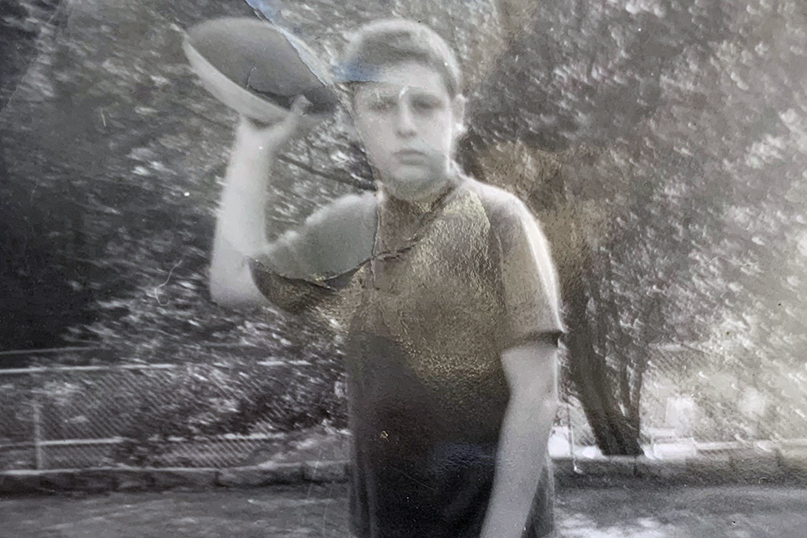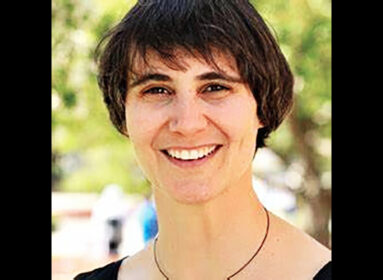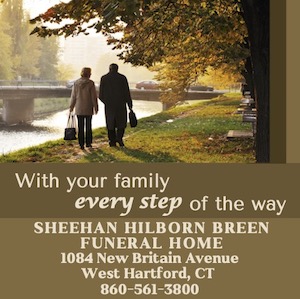
By Paul Bass
Hugs are out. Hand sanitizer, in.
Those are among the new realities of burying loved ones in the Age of COVID-19.
I learned about those realities recently when we buried my brother. I was determined to give him a traditional Jewish burial service. That required adjustments.
We almost didn’t go through with the funeral. His long-expected death came just as we were all learning that we should avoid congregating in public in order to prevent people from dying.
So for starters, we couldn’t hold a funeral service indoors, for fear of spreading the coronavirus.
We couldn’t hug each other, or even touch, no matter how much comfort someone might need.
And we couldn’t invite most of the people who would want to say good-bye to Robert – even if they were willing to show up in public in Westchester County, where many cases have been reported.
We arranged to bury Robert beside the grave of our mother in a cemetery in the town of Valhalla. The funeral home in charge of arrangements there had some rules for the graveside service: No more than 12 people. And no gathering indoors.
The time was set for 1 p.m. Tuesday. As late as Tuesday morning, receiving passionate advice on both sides from friends, I was debating whether it was irresponsible to go through with it. You’re endangering the lives of people you love, especially those whose health is compromised by chronic illness, one close friend advised. Another urged me to fulfill my familial religious duty and avoid succumbing to a panic that may cause more harm than it prevents.
It was agreed that my other two siblings should not attend the funeral. They’re considerably older than I am – practically old enough to run for president nowadays – so they’re in a high-risk group. I’m not quite in that group myself, at least not technically. I figured that if I encountered any spiky viral molecules, I could whip out my driver’s license and prove it can’t give me more than a cough and slight fever until I officially turn 60 in June.
In general I have been committed to following the guidance of our public health experts and government officials in the crisis. No more daily prayer at our shul (which has now closed anyway). Meticulous social distancing. Regular hand-washing. Sheltering at home, just my partner Carole and I. Our news organization (the New Haven Independent and WNHH FM radio) is working remotely rather than congregating in our small shared office.
What happened in Italy and China is real; the threat that it can happen here is real too.
That means we Jews can’t perform some of our tradition’s beautiful and powerful rituals for grieving the loss of a loved one. It makes me sad that I won’t be able to say kaddish, the prayer for the dead, for Robert at a daily minyan at my now-closed shul.
It makes me sad that we can’t responsibly invite friends over to sit shiva in person in our home. It makes me sad. It also makes sense, and comports with religious dictates to preserve life.
But I did want to bury Robert if at all possible. I loved my brother, even though it was a relationship that remained fraught through the decades, all the way to my participation in life-and-death decisions as his health proxy. He was 13 and I was eight when our mother died, and he looked after me with devotion in those fragile years. We continued to love each other deeply, even during periods of estrangement. His wife and daughters very much wanted a burial. A few close friends felt the same way. It’s a mitzvah – not merely a good deed, but a commandment to bury a loved one. And I had experience officiating at a funeral. Others had provided the money or daily care for Robert as he suffered; I felt this was one useful service I could perform, as a brother, as a Jew, as a human being.
It’s also a mitzvah to protect life. With COVID-19, many lives can be at stake from each of our individual decisions. So we had to weigh the benefits and risks. There was no simple solution, no good choice. It seemed that a 10-person social-distanced graveside funeral might still work. Ten adults are required at a funeral to say kaddish. Experts and government officials were conveniently setting that advised maximum for gatherings.
So Carole and I decided to go for it.
It felt like we were preparing for a day trip to Chernobyl as we left the house for the funeral Tuesday. We had packed a “decon” kit with wipes and bleach solution rags and hand sanitizer, with each step planned and choreographed. I printed out the Hebrew prayers rather than taking the siddur I use for daily prayers, lest it get contaminated. (I know – I’ve drunk the Kool-aid!)
At the cemetery, we put our phones in the glove compartment of our car so they wouldn’t potentially come in contact with the coronavirus. The cemetery staff informed us that no one was allowed inside the office except me, to sign the necessary papers; I used my own pen rather than theirs.
We then assembled at the grave, where Robert’s coffin sat ready for interment.
Beneath overcast skies, we spread out. Carole sang the 23rd Psalm in Hebrew. We took turns remembering Robert, with tears, love, and no illusions. We took turns shoveling dirt onto the coffin. I retrieved one of the rags we had packed to cover my hands, then, after shoveling, sprayed them with sanitizer. Carole sang the traditional el malei rachamim prayer to bid Robert a peaceful eternal rest.
Then we recited the mourner’s kaddish – a prayer that doesn’t mention death, but rather encourages us to keep living.
Then it was over. People still wanted to tell stories. A gravitational pull seemed to draw us physically closer. We resisted the temptation to hug. We stepped back. And we left, with vague plans for a larger post- Armageddon gathering where everyone who misses Robert can pay tribute. When (if?) life returns to normal.
Arriving home an hour later, Carole and I completed our plans. We headed straight to the basement to throw our jackets in the wash. Then I sealed the prayer print-outs in a Ziploc bag to “detox”; because they contain the name of God in Hebrew, they can’t be thrown out, but in case they were virally “radioactive,” we didn’t want them lying around. The whole exercise made me think about the often confounding labeling of the pure (tahor) and the impure (tamei) in Jewish tradition in matters ranging from childbirth to seminal emissions to menstruation.
In this current public health crisis, our rituals are inevitably scrambled. From our work to our sustenance to our health and safety, we adjust, find new ways to function and connect to community. In place of shiva and daily kaddish, we Jews will find other ways to grieve the loss of our loved ones. But at least in this early stage of the great coronavirus shutdown, it was possible to give Robert the farewell he deserved. I pray I didn’t contract the virus. I pray I didn’t unwittingly spread it. I’m glad we chose to congregate. At least for now.
Reprinted with permission of New Haven Independent (www.newhavenindependent.com).
Main Photo: Robert Bass z”l, 1967.








 Southern New England Jewish Ledger
Southern New England Jewish Ledger









